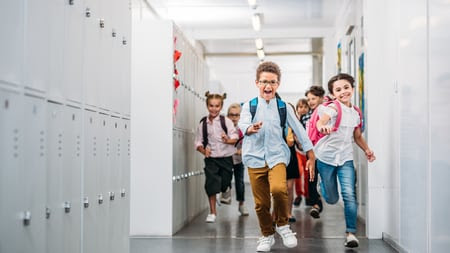Even as we confront the treacherous coronavirus pandemic with a large-scale effort to treat, mitigate and protect our people, leaders are starting to turn their attention to reopening America’s industries, municipalities, and civic society. Governors like Phil Murphy, Andrew Cuomo and Gavin Newsome are speaking about an 18-month plan. Educators, who deserve commendation for the rapid response to organizing online learning to create some continuity for learners, similarly need an 18-month plan. The social and emotional wellness of adults and students must be embraced as an important component of pandemic recovery.
We know from studies, like “Children of Katrina,” that children exposed to natural disasters and their aftermath are much more likely to suffer emotional disturbances than other kids, even years later. And we know which children fare worse than others: poor children, Black and Brown children and learners with special needs.
The virus preys on those who have underlying conditions and are weakened by social neglect that allows our society to push too many people to the margins, with inadequate social and financial capital and few opportunities to improve their lives. Systemic disparities in health, housing, employment, education, wages, nutrition fuel the racial disparities that have resulted in decreased access and opportunity to resources needed to either prevent or treat the “infamous” underlying conditions.
While most of us have had our “worlds” turned upside-down by the health, economic and social realities of living through the COVID-19 pandemic, poor children and children of color have disproportionately had many of their loved ones die. Every day, they see relatives leave the house and expose themselves to a potentially lethal virus that they then bring back home. They have heard family members worry about food, rent, heat, electricity and how to get health care when it’s needed.
This once-in-a-lifetime health challenge will have a life-long impact on the social and emotional wellness of our children and youth. Schools must recognize this. Our children cannot go back to business as usual. Schools must devote the first two to three weeks to welcoming and healing. The social-emotional wellbeing of students and staff should be the focus. Everyone has had losses -- time, last year’s classmates and teachers, opportunities, loved ones — and these must be acknowledged and grieved.
The inequities that have been in plain sight but now are too illuminated to ignore must be kept in view. Awareness of differences and the requirement to be inclusive and to treat all children with dignity, respect, consideration and support should be built into these initial weeks and become part of the everyday norms for every day of every school year.
The pandemic has illuminated the historical disparities for children of color, children of poverty and children with special needs. These children and all children must learn skills of leadership, social action, and civic participation. All students must be helped to identify their sense of positive purpose, which we know from research is a powerful motivator for learning. The stories of those who have been disadvantaged must become part of the curriculum if all students and staff are to be liberated from the grip of prejudice and oppression.
It is frequently said that “out of crisis comes opportunity.” We have the opportunity for schools and communities to engage together to address existing inequities and to build community-wide resources to help students resolve the traumatic impacts of the pandemic on their academic and social development.
There are roles for everyone, including parents, schools, community-based organizations, state agencies, higher education, churches, private sector, non -profits, community-based mental health services, advocacy organizations and others to engage with each other to create locally developed solutions that embrace the necessity to attend to this trauma.
We must adopt a long-term view on supporting the social-emotional wellness of the learners and all the adults engaged in the public education enterprise. And we must keep a sustained focus on what the pandemic has made clear to all of us about the price of social inequities.
Maurice J. Elias is a professor of psychology at Rutgers and directs the Social-Emotional and Character Development Lab. He’s also the author of “The Joys and Oys of Parenting,” and “The Other Side of the Report Card: Assessing Students’ Social, Emotional, and Character Development”
Larry Leverett is a retired educator who was an assistant commissioner of education in NJ and superintendent of Plainfield Public Schools.
Our journalism needs your support. Please subscribe today to NJ.com.
The Star-Ledger/NJ.com encourages submissions of opinion. Bookmark NJ.com/Opinion. Follow us on Twitter @NJ_Opinion and on Facebook at NJ.com Opinion. Get the latest news updates right in your inbox. Subscribe to NJ.com’s newsletters.
You need to be a member of Montclair State University Network for Educational Renewal to add comments!
Join Montclair State University Network for Educational Renewal


Comments